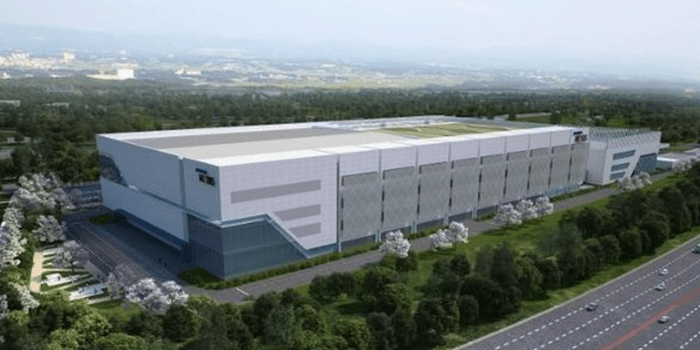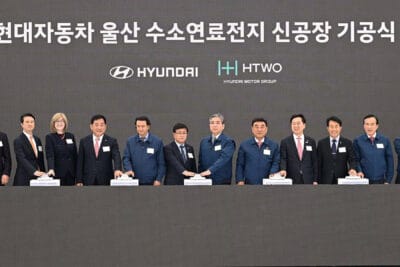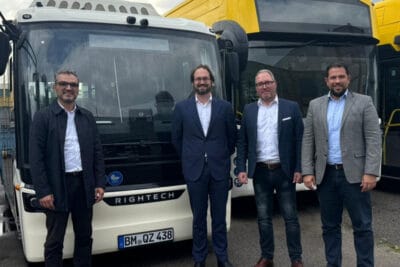Hyundai Mobis invests in fuel cell system plants
Hyundai Mobis, the South Korean automotive supplier belonging to the Hyundai Motor Group, has announced that it will invest about 1.3 trillion won (equivalent to about 950 million euros) in the construction of two plants for fuel cell systems in the Korean cities of Incheon and Ulsan.
The two factories will perform different tasks in the manufacturing process of the fuel cell systems. In Incheon the stacks will be produced, in Ulsan they will be assembled with other components to FC systems. Hyundai Mobis plans to start production in the second half of 2023. When fully operational, an annual capacity of 100,000 FC systems is to be achieved. The Korean company envisages not only their own group of companies as customers, but also third parties for the first time.
The official groundbreaking ceremony for the stack production plant in the industrial city of Incheon took place this week. The plant is being built on an industrial complex in Cheongna International City. Hyundai Mobis is not yet giving details of the start of construction in Ulsan, but emphasises that the site is close to the Hyundai Motor plant in Ulsan, where the fuel cell car Nexo and, from 2023, a new FCEV model from the Hyundai Group will be manufactured.
Already about a month ago, the Hyundai Group announced at the IAA that two important hydrogen premieres are due in 2023: Firstly, the Nexo, which has been built since 2018, is to receive a successor, and Hyundai also plans to present a “hydrogen-powered multi-purpose vehicle (MPV)” then. As reported, this is likely to be an H2 version of the Staria van. Commercial vehicles also play an important role in the FCEV roadmap: In Munich, two H2 buses of the Elec City type have been in the test phase since the end of June.
With an annual capacity of 100,000 fuel cell systems, Hyundai Mobis will be able to supply external customers as well as FC vehicles of its own group. It is planned to sell the fuel cell systems with the increased production capacity to other companies, according to a press release of the company. The supplier has its eye on the construction machinery and logistics equipment sector in particular.
In 2020, Hyundai Mobis has already developed fuel cell units for H2 forklifts, which are generators that produce electricity independently by combining a fuel cell stack, a hydrogen tank and a cooling device. Currently, Hyundai Mobis is also working on a variant for hydrogen-powered excavators and fuel cell systems for smaller aircraft.
With the two plants now announced, Hyundai Mobis will operate a total of three fuel cell plants in the future. This is because in 2018 the company already opened a factory in Chungju in central Korea with a capacity of 23,000 FC systems per year. There, all manufacturing processes for the fuel cell systems will take place under one roof. All FC systems for the Hyundai Nexo come from Chungju. Since the introduction of the FC car in 2018, Hyundai says it has sold 19,051 units.
“Despite the uncertainties, which include Covid-19, we have decided to make this major investment to ensure market-leading competitiveness in the global fuel cell industry,” says Sung Hwan Cho, president and CEO of Hyundai Mobis, referring to the newly unveiled plant plans. And, “We will continue to invest in facilities and expand our research and development capabilities for the development of the hydrogen industry and expand the ecosystem.”
Hyundai Mobis describes itself as the world’s seventh-largest automotive supplier with annual sales of nearly $30 billion. The company was founded in 1977 and is headquartered in Seoul. The supplier’s portfolio includes sensors, software, various electrification components, brakes, chassis and suspension, steering, airbags, lighting and automotive electronics. Hyundai Mobis currently employs more than 30,000 people worldwide. In addition to its R&D headquarters in Korea, Mobis operates four technology centres in Germany, China, India and the United States.





0 Comments